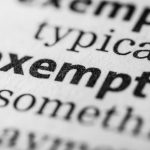Various charitable and non-profit organizations have tax-exempt status under the Internal Revenue Code (IRC). However, they must comply with specific requirements to maintain their status. Limits on political activity vary according to the type of charitable organization involved. However, measures do exist that allow these organizations to avoid taxes on political expenditures by creating separate segregated funds. If you have questions about protecting your charitable organization’s political expenditures from taxation, contact Church Law Center at (949) 892-1221 today for legal advice and guidance.
501(c) Organizations and Political Activity
Different types of §501(c) organizations can participate in varying levels of political activities. However, breaching the limits on their political activities can cause organizations to be assessed taxes and lose their tax-exempt status. For instance, federal law prohibits §501(c)(3) organizations from engaging in “campaign activity.” Nonetheless, these organizations can engage in nonpartisan political activities like voter registration drives. Furthermore, §501(c)(3) organizations can engage in advocacy in the form of lobbying and legislative activities, so long as it is an “insubstantial” amount of its activities.
Social welfare organizations under §501(c)(4) may engage in some political activities, including legislative advocacy or lobbying to further their exempt purpose. Political activities do include participating or intervening in political campaigns on behalf or in opposition to any candidate for public office.
While 501(c) organizations must follow the federal laws that apply to them concerning political activities, they also are subject to taxation rules under §527(f) when they make expenditures for permissible political activities. However, they may avoid taxation by establishing separate segregated funds.
Separate Segregated Funds Under §527(f)
Section 527(f)(3) allows 501(c) organizations to create separate segregated funds to make political expenditures without paying taxes on them. The earnings and expenditures in the segregated fund will not be attributable to the underlying 501(c) organization, because the separate segregated fund constitutes a separate political organization, so long as it meets certain requirements.
A separate segregated fund must be organized and operated to carry on exemption function activities to qualify as a political organization. The primary purpose of the segregated fund must be to directly or indirectly receive exempt function income and earnings on that income. However, the separate segregated fund must receive donations directly, and not from the assets of the controlling 501(c) organization. Additionally, the fund must segregate the exempt (political) income and may make political expenditures of any income and earnings the fund holds.
Under §527(e), an exempt function is “influencing or attempting to influence the selection, nomination, election, or appointment of any individual to any federal, state, or local public office or office in a political organization, or the election of presidential or vice-presidential electors.” These expenditures may be direct or indirect. Direct expenditures are those for activities related to supporting the election process. Indirect expenditures are those for activities such as soliciting contributions and paying overhead costs. Examples of exempt function income include the contribution of money or property, membership dues, fees, assessments, proceeds from political fundraising events, and political campaign material sales.
Although the political organization can engage in non-exempt function activities, those activities may not be its primary activities, and the income from those activities remains taxable.
The IRS does not require a political organization to have any specific structure. The separate segregated fund can be a checking account so long as it is identifiable as a segregated fund. The fund must have its own EIN, separate from that of the non-profit organization. The political organization also must file a timely notice with the IRS that it wishes the IRS to treat it as a tax-exemption organization.
Call Church Law Center Today
If your non-profit or charitable organization needs legal advice or assistance regarding political activity or other issues related to its tax-exempt status, contact an experienced §501(c)(3) lawyer today. Call the offices of the Church Law Center at (949) 892-1221 or contact us online for more information today. We offer a wealth of experience handling the unique legal issues that non-profit and religious organizations routinely face.






